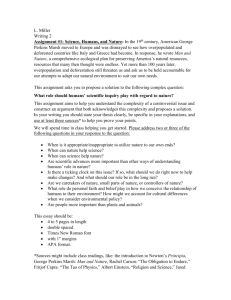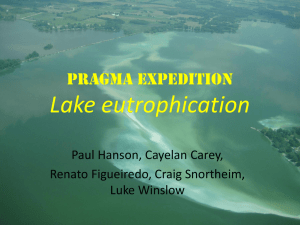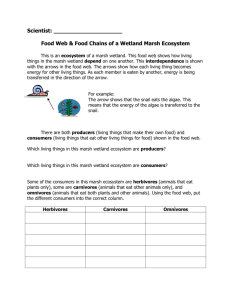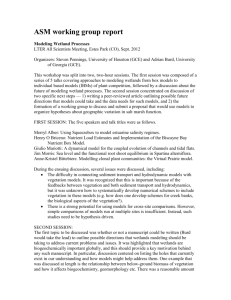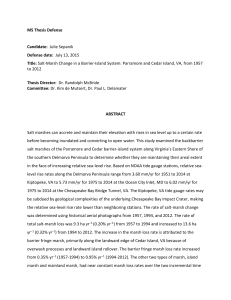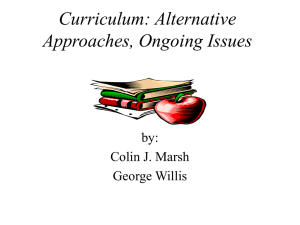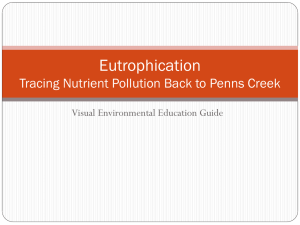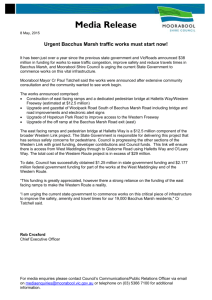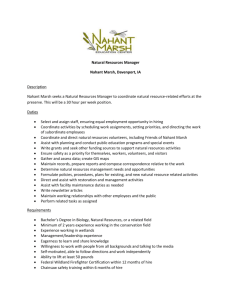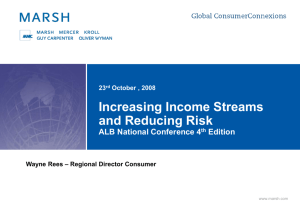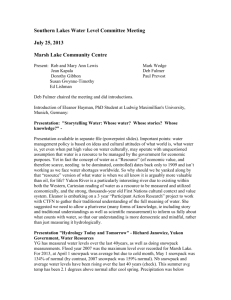Sheboygan Marsh Eutrophication
advertisement
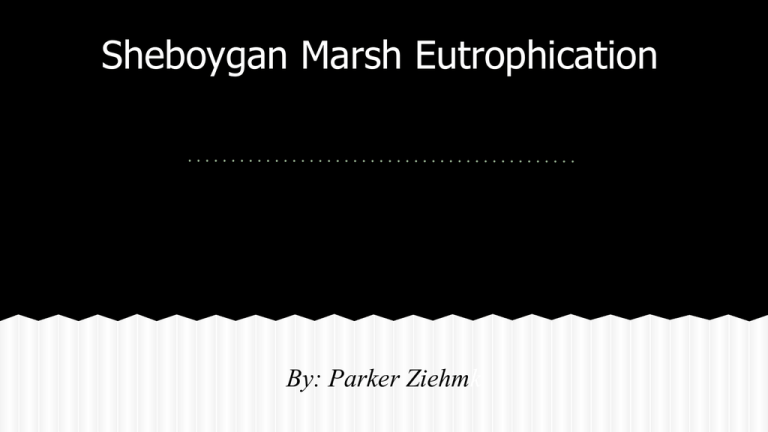
Sheboygan Marsh Eutrophication By: Parker Ziehmk History of the Sheboygan Marsh A glacier comes over the area and creates a little kettle about 12,000 to 14,000 years ago. Over a short or big timespan the kettle filled up and transformed into a lake. In 1831 John Bertschy bought tiny part of the lake and tried to drain it for a farm but failed. He later went bankrupt. Over a period from 19121921 they drained a second time. They were more successful than John. The main reasons for draining the lake was for farm land considering that the land was so cheap and was bought up in instant. 1927 was restoration efforts were started, and the first thing was to rebuild the dam the John Bertschy broke. After that was completed they tried refilling the lake to try and top it from becoming a marsh. Sheboygan than bought the marsh and turned it into a recreational park. Eutrophication Effects ● One big one is that the Marsh will dry up in time. This will happen by the sediment increasing and having the Marsh overflow. ● All of the living species plants and fish included there will die off, or move. ● Water will not be clear, or Turbidity will decrease immensely. ● Decrease in water activities such as Boating, Swimming, and Fishing. Steps taken to Stop/Slow Eutrophication ♦ Remove nutrient from waste water. ⇒(Pretty Costly Option)⇐ ♦ Drain the water out, and then kill the algae with chemicals. (copper sulphate & chlorine) ♦ Remove excessive weeds, sediment, etc. Future Outlook of the Marsh ✌ Can’t stop Eutrophication currently, but can slow it down with the ideas and more. Conclusion: Won’t be able to stop Eutrophication for awhile, but when the technology advances the marsh may not be completely gone and we can top and neutralize Eutrophication. After we neutralize it we can refill the marsh.
